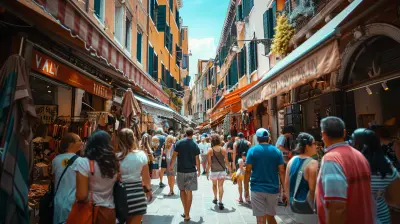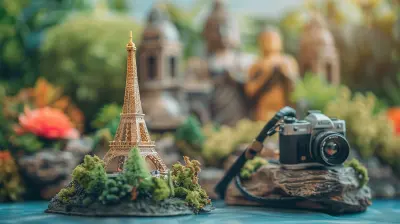Mastering Drone Photography for Spectacular Travel Footage
22 November 2025
Are you looking to take your travel photography to new heights—literally? Drone photography can transform your travel memories into stunning masterpieces, capturing breathtaking aerial views that were once only possible for birds and pilots.
But mastering drone photography isn’t just about throwing your drone into the air and hoping for the best. It takes strategy, skill, and a keen eye for framing epic shots. So, if you’re ready to take flight and up your travel content game, keep reading.
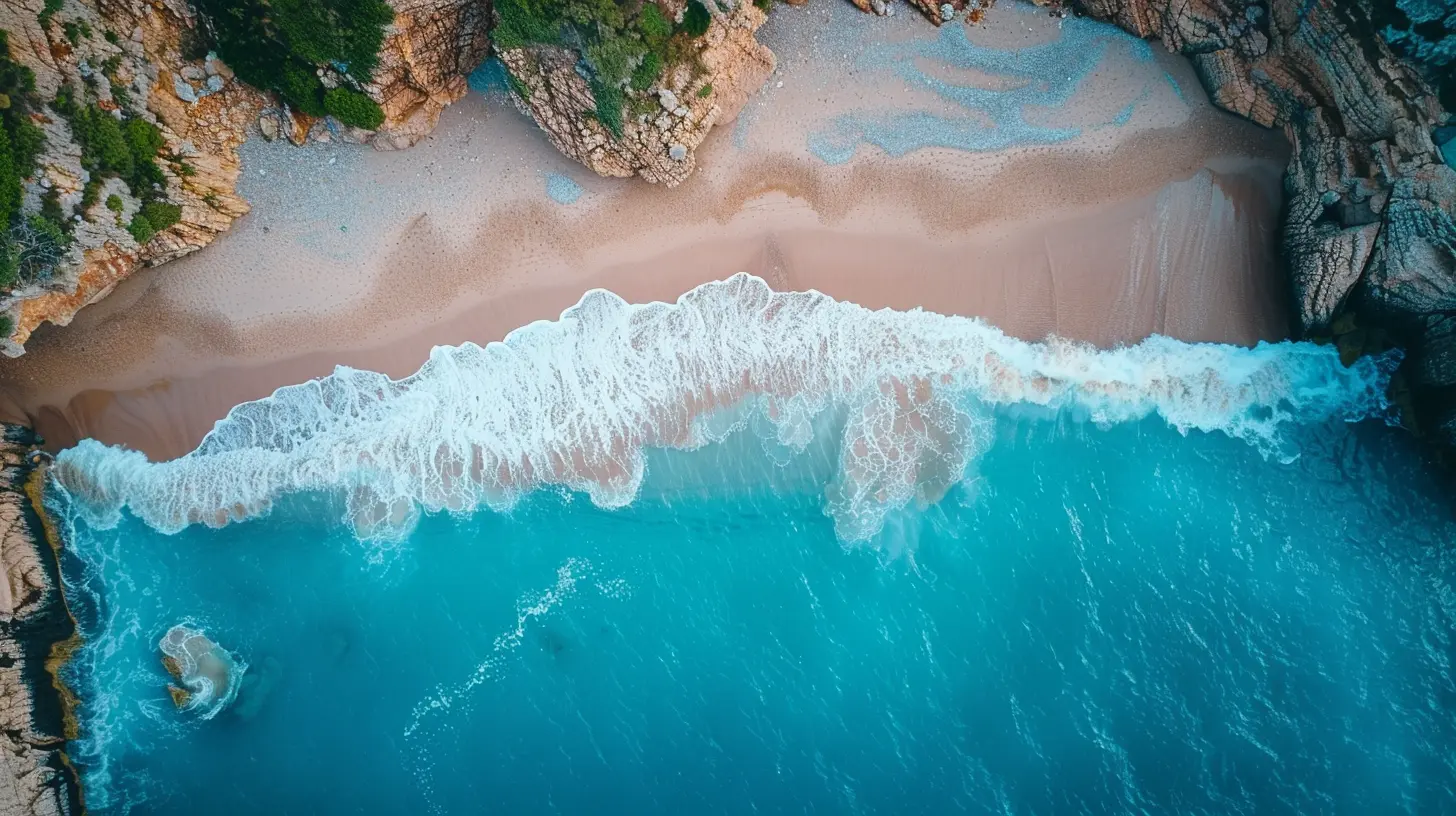
Why Drone Photography is a Game-Changer for Travelers
Traditional travel photography is great, but there’s something about an aerial view that just hits different. Drones allow you to:- Capture landscape and cityscape shots from unique perspectives
- Create cinematic travel videos
- Showcase destinations in ways that stand out on social media
- Shoot photos and videos without obstacles blocking your view
- Take stunning panoramic shots that offer a whole new outlook on your travels
In short, drones unlock a new world of visual storytelling that makes your travel content pop!
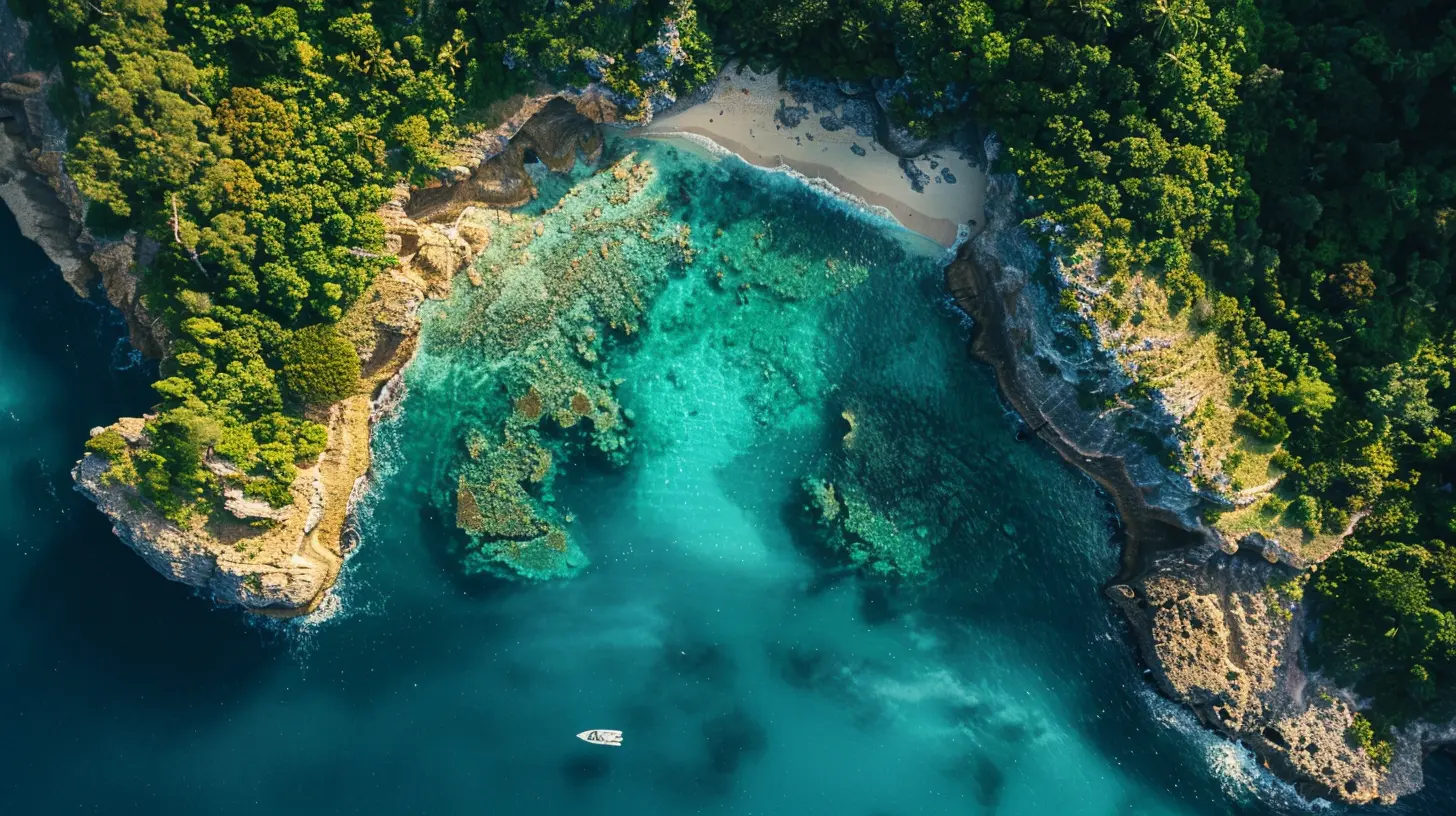
Choosing the Right Drone for Travel
Not all drones are created equal, and when you're traveling, portability and ease of use matter just as much as camera quality. Here are a few factors to consider when choosing your drone:1. Portability
You don’t want to lug around a bulky drone while hopping between destinations. Look for lightweight, foldable options that easily fit into a backpack.2. Camera Quality
If you're serious about capturing stunning footage, opt for at least a 4K camera with a gimbal for smooth, stabilized shots.3. Battery Life
Drone batteries don’t last forever, and the last thing you want is to run out of juice mid-flight. Extra batteries are a must.4. Flight Time & Range
Longer flight times mean more creative possibilities. Drones with at least 25-30 minutes of flight time per battery are ideal for travel.5. Obstacle Avoidance & Stability
Windy locations? Tight spots? A drone with excellent stabilization and obstacle avoidance will save you from heart-stopping crashes.Great Travel-Friendly Drone Options:
- DJI Mini 3 Pro – Lightweight, compact, and powerful- DJI Air 2S – Excellent camera and smart features
- Autel Evo Lite+ – Fantastic low-light performance
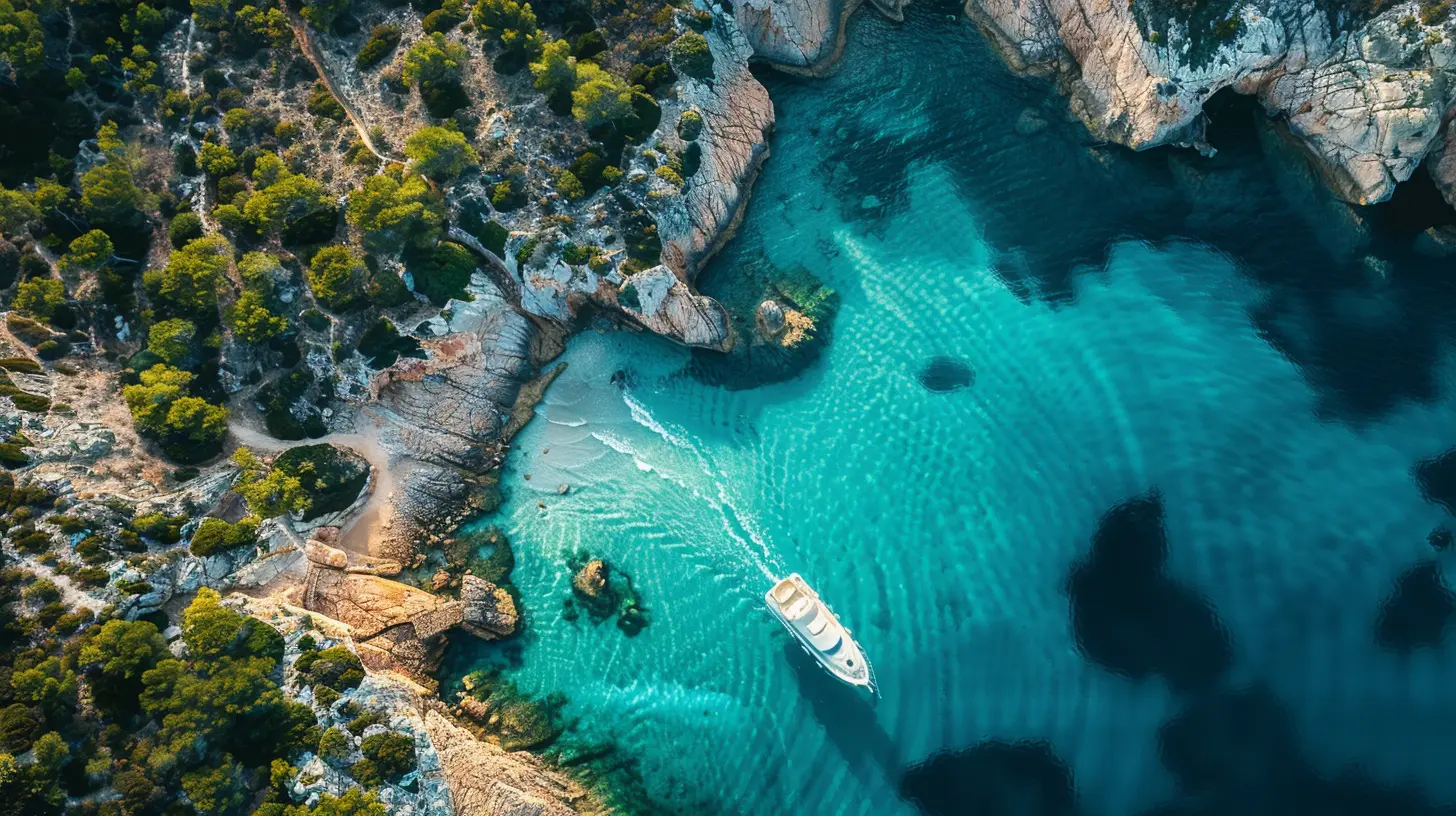
Understanding the Basics of Drone Photography
Before you hit record, let’s go over some essential techniques to make sure your footage doesn’t look like it was shot during turbulence.1. Learn the Rules & Regulations
Every country has different drone laws. Some places require permits, while others have strict no-fly zones. A quick Google search before your trip can save you from hefty fines (or confiscation!).2. Master the Art of Composition
Just like regular photography, composition makes or breaks a shot. Try these techniques:- Rule of Thirds – Keep your subject off-center for a balanced look.
- Leading Lines – Use roads, rivers, or coastline curves to naturally guide the viewer’s eye.
- Symmetry & Patterns – Aerial perspectives highlight symmetry beautifully—think rice terraces or bustling city grids.
3. Lighting is Everything
Avoid harsh midday lighting. The best times to fly? Golden hour (sunrise or sunset) when shadows are long, and colors are warm.4. Motion Creates Magic
Static drone shots are stunning, but motion adds drama. Try:- Orbital Shots – Circling your subject for a cinematic feel.
- Revealing Shots – Flying over hills or through gaps for that ‘wow’ moment.
- Top-Down Shots – Straight-down views for mesmerizing perspectives.
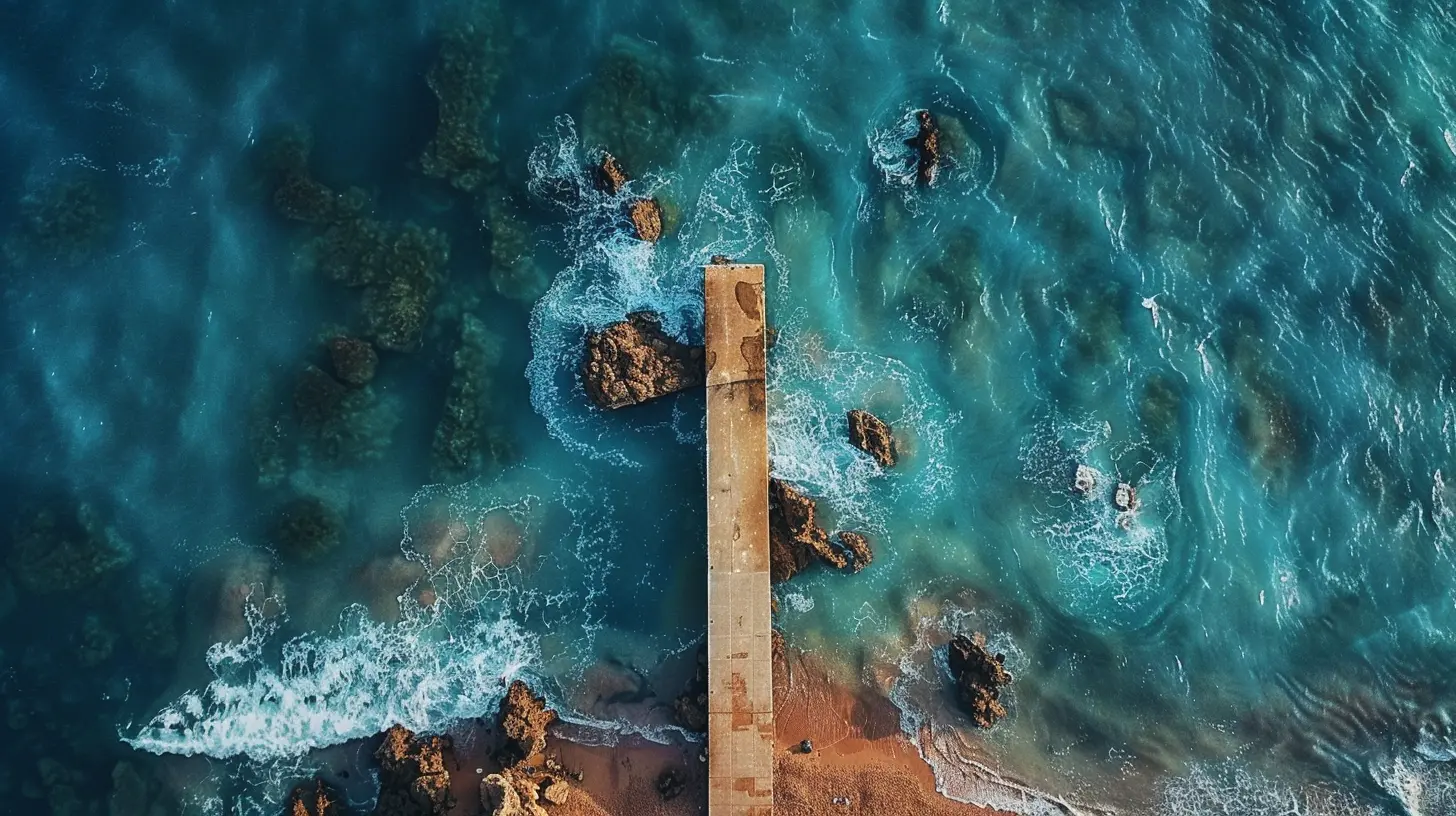
Pro Tips for Jaw-Dropping Drone Footage
Ready to take your footage from average to awe-inspiring? Here are some insider tricks to get you there.1. Scout Locations Before You Fly
Use Google Maps or drone apps (like AirMap or DroneDeploy) to check out potential spots before launching. Look for open areas with interesting elements like cliffs, waterfalls, or bustling streets.2. Use ND Filters for Pro-Level Shots
Neutral Density (ND) filters work like sunglasses for your drone’s camera. They help control exposure, making your footage look cinematic instead of washed out.3. Slow and Steady Wins the Race
No one wants shaky, rushed footage. Move your drone slowly and smoothly to create that Hollywood-like effect.4. Experiment with Different Heights
Too many drone shots are taken at max altitude, but sometimes, flying lower gives better composition and detail. Play around with different heights for dynamic shots.5. Use Manual Camera Settings
Auto mode works, but manual settings give you real control. Adjusting ISO, shutter speed, and white balance can make a huge difference—especially in tricky lighting conditions.6. Edit Like a Pro
Raw footage looks good, but editing makes it shine. Use apps like Adobe Premiere Pro, Final Cut Pro, or even DJI’s own editing tools to enhance colors, add transitions, and stabilize clips.Keeping Your Drone Safe While Traveling
Drones are an investment, and losing one mid-trip is a nightmare. Here’s how to keep yours safe:1. Carry a Proper Drone Bag
A good protective case or backpack prevents damage while traveling. Bonus: It makes airport security checks a breeze.2. Keep Extra Batteries & Memory Cards
Nothing kills a shoot like a dead battery or a full memory card. Pack spares—you’ll thank yourself later.3. Be Aware of Weather Conditions
Drones hate wind, rain, and extreme cold. Always check the forecast before flying.4. Have a Plan for Emergencies
If your drone loses signal, don’t panic. Most modern drones have a “Return to Home” feature—make sure it’s set properly before taking off.
Ethical Considerations in Drone Photography
Getting the perfect shot is great, but not at the cost of breaking rules or disturbing others. Keep these things in mind:- Respect Privacy – Just because you can fly over someone's house doesn’t mean you should.
- Avoid Crowded Areas – Drones can be noisy and intrusive, so be mindful of people around you.
- Protect Wildlife – Many animals get stressed by drones. Avoid flying near birds, marine life, or nesting areas.
Final Thoughts
Drone photography can turn your travel memories into pure cinematic magic. Whether you're capturing the azure waters of the Maldives, the golden dunes of the Sahara, or the neon-lit streets of Tokyo, a drone gives you an entirely new perspective.The key? Practice, patience, and creativity. The more you fly, the better you’ll get. So, charge up those batteries, find an epic location, and get ready to capture travel footage like never before!
all images in this post were generated using AI tools
Category:
Photography TipsAuthor:

Shane Monroe
Discussion
rate this article
1 comments
April Sweeney
Flying high with your drone? Just remember: it’s not just about capturing epic shots of landscapes but also dodging seagulls on a mission to photobomb your masterpiece!
November 30, 2025 at 4:47 PM

Shane Monroe
Absolutely! Navigating both the skies and seagulls adds an exciting challenge to capturing those breathtaking shots!
